By We Level Up | Editor Yamilla Francese | Clinically Reviewed By Lauren Barry, LMFT, MCAP, QS, Director of Quality Assurance | Editorial Policy | Research Policy | Last Updated: May 2, 2023
Heroin Withdrawal Symptoms
Heroin addiction can result in tolerance to and dependence on the drug. When tolerance happens, individuals need more of the drug to achieve the same effect. Dependence on heroin means the person is returning to using heroin to stop withdrawal symptoms. The primary risk associated with the withdrawal symptoms from heroin is subsequent overdose due to loss of tolerance.
What causes heroin withdrawal to occur? All opioids, especially heroin, can become habit-forming. When you build a tolerance to heroin, you need to use more of it to obtain the same high. Eventually, you can become physically and psychologically dependent on the drug. Chronic heroin use alters the nerve receptors in your brain. They come to depend on opioids, particularly heroin, to function. If you stop using heroin or reduce your intake, you may experience withdrawal symptoms. The withdrawal symptoms represent your body’s physical response to the absence of heroin.
What are the Symptoms of Heroin Withdrawal?
Heroin withdrawal manifestation may develop rapidly. For instance, a person with a strong physical dependence might begin to experience them in hours. Over the following days, the withdrawal symptoms become more intense before peaking and then gradually subsiding. The National Institute on Drug Abuse (NIDA) reports that while heroin withdrawal symptoms tend to improve after a week, they may sometimes stay for months.
Here are some common signs of heroin withdrawal:
- Intense cravings for heroin.
- Agitation and restlessness.
- Anxiety and depression.
- Insomnia or disturbed sleep patterns.
- Yawning or tearing up excessively.
- Runny nose and congestion.
- Sweating and hot/cold flashes.
- Nausea, vomiting, and diarrhea.
- Muscle aches and pains.
- Dilated pupils and blurred vision.
- Rapid heartbeat and increased blood pressure.
- Tremors and shaking.
- Irritability and mood swings.
- Loss of appetite and weight loss.
- Difficulty concentrating and memory problems.
Seeking professional medical and mental health support during heroin withdrawal can help individuals manage these symptoms safely and effectively. In this article, we will tackle in-depth symptoms of withdrawal from heroin, how to get help, and where to get treatment where you can detox safely from heroin and drug use.
Heroin Withdrawal Timeline
How long do heroin withdrawals last? Here is a general timeline of heroin withdrawal symptoms:
| Within 6-12 hours after last use. | Mild withdrawal symptoms such as cravings, anxiety, restlessness, and sweating appear. |
| 1-3 days after last use. | Withdrawal symptoms peak during this time, including nausea, vomiting, diarrhea, muscle aches, and insomnia. Other symptoms may include dilated pupils, goosebumps, and abdominal cramping. |
| 4-5 days after last use. | Symptoms begin to subside, but some may persist, such as anxiety, depression, and sleep disturbances. Cravings for heroin may still be present. |
| 6-7 days after last use. | Symptoms continue to improve, although some individuals may experience lingering withdrawal symptoms. Physical symptoms, such as nausea and diarrhea, are less severe. |
| 1-2 weeks after last use. | Most physical symptoms have subsided, although some may still experience cravings, depression, and insomnia. The risk of relapse is highest during this time. |
When Does Withdrawal from Heroin Symptoms Start?
Most people experience heroin withdrawal symptoms during the first twenty-four hours (sometimes as quickly as four hours) after their last use, peak between 36 to 72 hrs, and last seven to ten days. The duration and severity of withdrawals from heroin may depend on how long the person used heroin and the amount and method of heroin use. Individuals who use heroin may experience some withdrawal for up to 3 or 4 weeks.
While withdrawal is necessary when addressing heroin addiction, options are available to detox comfortably and safely.
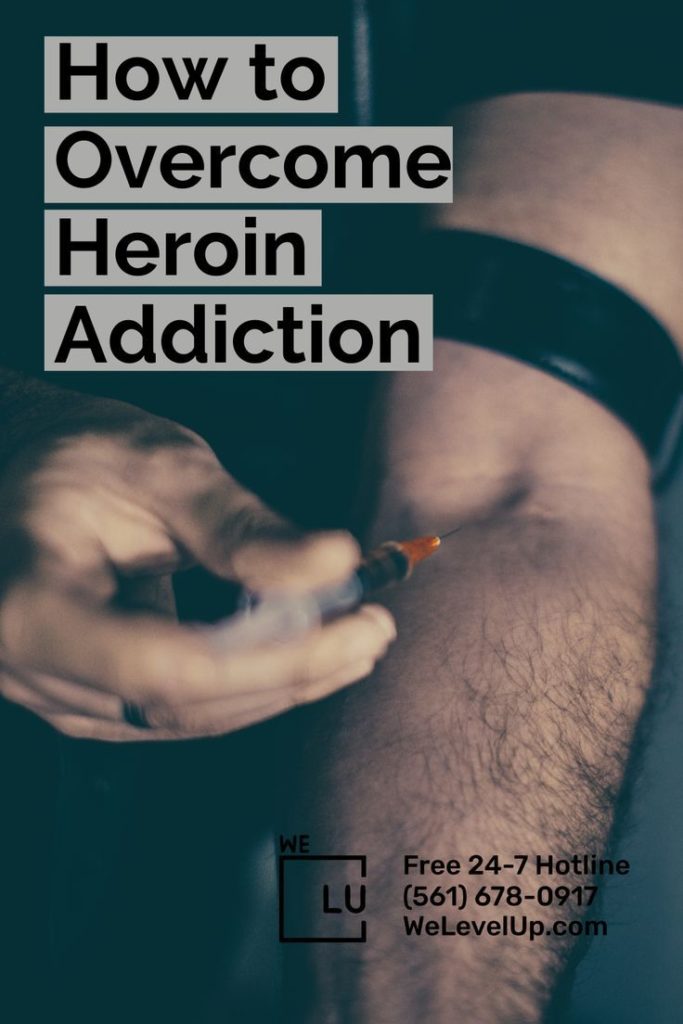
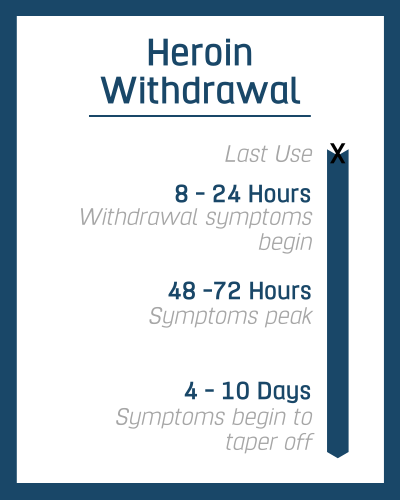
Skip To:
Learn More:
- Heroin Detox Timeline, Withdrawal Symptoms, Care & Treatment
- Heroin Addiction
- What Does Heroin Smell Like?
- How Long Does It Take To Withdraw From Heroin?
- How Long Does a Heroin High Last?
- Side Effects Of Heroin, Withdrawal Symptoms, & Treatment
- 6 Signs of a Functioning Heroin Addict
- Can You Snort Heroin? Snorting Heroin Side Effects, Dangers & What Happens When Sniffing Herion?
- Heroin Paraphernalia
- Meth vs Heroin
Heroin Withdrawal Fact Sheet
Heroin Drug Class: Heroin is an opioid drug made from morphine.
Heroin Drug Schedule: Schedule I. It has a high potential for addiction and no currently accepted medical use in therapy and treatment in the US.
Heroin Withdrawal Treatment
When persons addicted to opioids like heroin first stop, they experience severe withdrawal symptoms (pain, diarrhea, nausea, and vomiting). Medications might be beneficial during the detoxification period. This alleviates cravings and other bodily signs that can frequently lead to relapse.
Medication-assisted treatment (MAT) can be considered by all individuals seeking treatment for heroin addiction. Drugs such as Suboxone and Vivitrol may aid heroin addicts in their recovery.
- Lofexidine.
- Lofexidine is a medication approved by the US Food and Drug Administration (FDA) for treating opioid withdrawal symptoms, including those associated with heroin withdrawal. It is marketed under the brand name Lucemyra.
- Methadone.
- It is a long-acting opioid agonist. Methadone is administered orally to reach the brain slowly and avoid withdrawal symptoms. Methadone is only accessible in authorized treatment programs, where it is given to patients regularly.
- Buprenorphine (Subutex).
- FDA approved. Buprenorphine reduces drug cravings without the “high” or hazardous side effects associated with other opioids. Suboxone is a new buprenorphine formulation that is taken orally and contains Naloxone (an opioid antagonist) to prevent efforts to get high by injecting the medicine.
- Naltrexone (Vivitrol).
- FDA approved. It is a medication primarily used to manage alcohol or heroin addiction by reducing cravings and feelings of euphoria associated with substance abuse. Heroin addicted person should not receive naltrexone before detoxification.
Anyone who exhibits symptoms of an opioid overdose or suspects an overdose should be given Naloxone. It can be administered through injection into the muscle, skin, or veins or as a nasal spray.
Post-Acute Withdrawl Syndrome (PAWS)
Unfortunately, some people develop post-acute withdrawal syndrome, often known as PAWS, while going through the heroin withdrawal process. This happens when a person has withdrawal symptoms over a lengthy period. Recovering heroin users may have symptoms for several weeks or even months.
PAWS can be a regular part of the recovery process and does not necessarily indicate unsuccessful treatment. With appropriate treatment and support, individuals can manage PAWS symptoms and maintain long-term recovery from heroin addiction.
Heroin Withdrawal Seizure
Seizures can occur during the acute withdrawal period, typically within the first 1-3 days after the last use of heroin.
The risk of seizures during heroin withdrawal increases in individuals with a seizure history, head injuries, or other medical conditions affecting the brain. The health risk is also higher in individuals who have used large amounts of heroin for an extended period, which can lead to more severe withdrawal symptoms.
Heroin Withdrawal Symptoms Hypertension
High blood pressure is a common symptom of heroin withdrawal. This is because heroin use can cause changes in the cardiovascular system, leading to increased blood pressure and heart rate.
During heroin withdrawal, the body adjusts to the absence of the drug, and the sympathetic nervous system is activated, which can cause a surge in blood pressure. This increase in blood pressure can be hazardous for people with heart disease.
If you are experiencing hypertension during heroin withdrawal, it is critical to seek medical attention. A healthcare professional can monitor your blood pressure and provide medications to help manage the symptoms. It is also crucial to make lifestyle changes, such as lessening salt intake, exercising physical activity, and avoiding alcohol and tobacco, to help manage blood pressure and improve cardiovascular health.
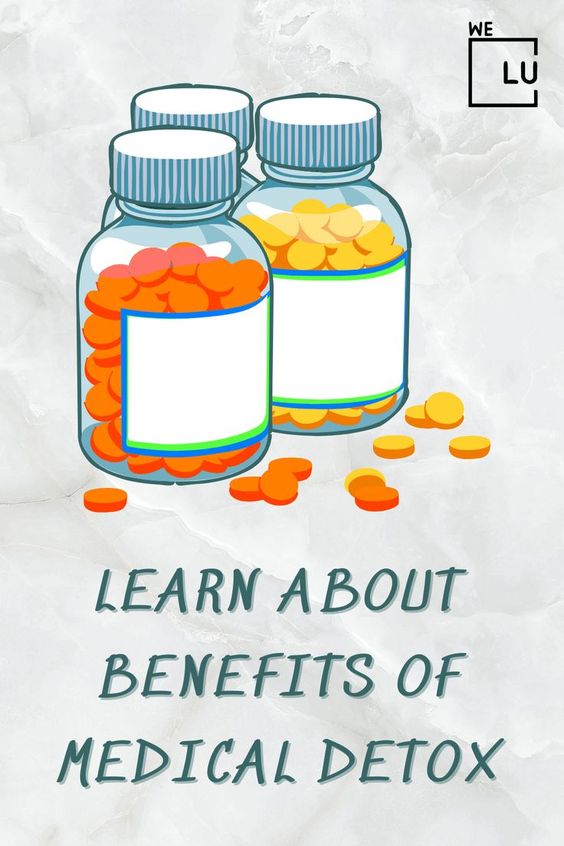

Get Your Life Back
Find Hope & Recovery. Get Safe Comfortable Detox, Addiction Rehab & Dual Diagnosis High-Quality Care.
Hotline(844) 597-1011Heroin Recovery Statistics
People using heroin regularly over a long period may experience heroin withdrawals when stopping or reducing their heroin intake. In 2018 in the US, about 808,000 individuals reported using heroin during the past year. [1] Careful planning can assist a person with heroin withdrawal, requiring professional assistance from experts like addiction specialists and therapists.
62%
Sixty percent of US citizens know somebody who has struggled with drug addiction, and 62 percent consider the issue widespread.
Source: CDC
21 Million
Nearly 21 million United States citizens have at least one substance use disorder, but only 10 percent obtain treatment.
Source: NCBI
80%
The heroin recovery statistics state that 80 percent of heroin users will relapse, but that doesn’t mean their rehab treatment failed.
Source: NCBI
Top 3 Heroin Withdrawal Symptoms FAQs
-
Can heroin withdrawal kill you?
Although rare, heroin withdrawal can potentially be life-threatening in some cases. The risk of death during heroin withdrawal is typically associated with severe dehydration, electrolyte imbalances, seizures, or other medical complications resulting from the withdrawal process. People with underlying medical illnesses, such as liver damage or heart disease, may have an increased risk of complications during heroin withdrawal.
-
What are the withdrawal symptoms of heroin?
Heroin withdrawal symptoms can vary in severity and duration depending on factors such as the individual’s level of dependence, length of use, and overall health. However, common symptoms of heroin withdrawal can include nausea, vomiting, diarrhea, abdominal cramps, muscle aches, sweating and chills, insomnia, restlessness, anxiety and depression, runny nose and watery eyes, yawning and fatigue, dilated pupils and blurry vision, rapid heartbeat, and high blood pressure.
-
Is it possible to treat heroin withdrawal in jail?
Many correctional facilities offer medical detox programs to help individuals safely withdraw from heroin and other substances while in custody. These programs are typically administered by medical professionals, such as doctors and nurses, who can provide medications and other intervention services to manage withdrawal symptoms and prevent complications. However, the quality and availability of heroin withdrawal treatment in jail can vary depending on the facility and its resources. Some facilities may offer only primary medical care for withdrawal, while others may offer more comprehensive treatment programs, including counseling and behavioral therapies. In addition, access to treatment can also depend on factors such as the individual’s sentence length, security level, and prior history of substance abuse. While it is possible to receive heroin withdrawal treatment in jail, seeking professional help outside prison may provide more comprehensive and personalized care.
Get Help. Get Better. Get Your Life Back.
Searching for Accredited Drug and Alcohol Rehab Centers Near You?
Even if you have failed previously and relapsed, or are in the middle of a difficult crisis, we stand ready to support you. Our trusted behavioral health specialists will not give up on you. When you feel ready or just want someone to speak to about therapy alternatives to change your life call us. Even if we cannot assist you, we will lead you to wherever you can get support. There is no obligation. Call our hotline today.
(844) 597-1011How Long Does It Take To Withdraw From Heroin?
The withdrawal symptoms heroin can produce usually last about a week. However, the experience is different for everyone. Several factors play a role in how the body reacts to heroin withdrawal. These may include the amount of heroin taken in each dose, how long heroin was abused, and how the person ingested the drug (snorting, smoking, shooting, or booking). Withdrawal symptoms of heroin may also be influenced by underlying mental health problems or a prior history of opioid abuse.
One of the many reasons heroin can be damaging is that it suppresses the normal functions of the central nervous system (CNS). As a result, it can harm your breathing, body temperature, and blood pressure. Since opioids like heroin bind to opioid receptors in the brain, the person using the drug can end up with changes in brain chemistry that affect how they experience pleasure and pain. When someone goes through heroin withdrawal, they may experience sensations opposite the highs they previously enjoyed. For instance, the heart rate can slow, and they may feel anxious or depressed.
What Does Heroin Withdrawal Feel Like?
Heroin withdrawal can cause various physical and psychological symptoms, varying in severity and duration based on the individual and the extent of their heroin use. Some common physical symptoms of heroin withdrawal include the following:
Symptoms of Heroin Withdrawal Cravings
Most people experiencing heroin withdrawal are highly urged to take more heroin drugs. This is also called “experiencing cravings” and is very common among people withdrawing from addictive substances. Part of the craving is motivated by the desire to reduce the symptoms of heroin withdrawal, and part of it is the yearning to re-experience the pleasure of the heroin high.
Mood Changes During Heroin Withdrawal
Feeling irritable, anxious, or depressed, also known as having a “dysphoric mood,” is a common symptom of heroin withdrawals. Even without a traumatic past, one is expected to experience these mood changes. Still, many people who use heroin experience long-suppressed feelings connected to abuse or past trauma when they come off the drug. This is why it is critical to have emotional support while going through heroin withdrawals. These feelings become less intense once the heroin withdrawal stage is over.
Vomiting and Nausea
Although these are distressing symptoms, nausea, and vomiting are typical for heroin withdrawals. It wears you out, makes you off your food, causes uncomfortable sensations, and keeps you close to the bathroom.
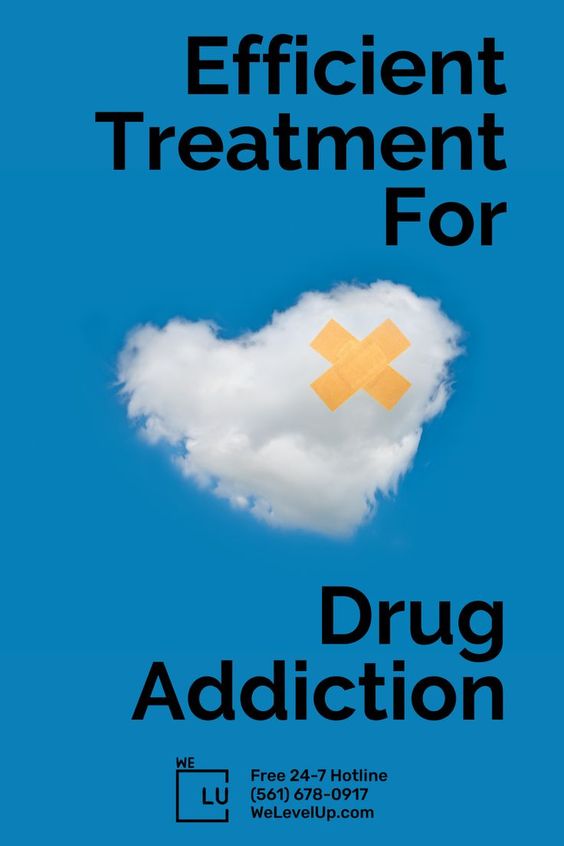
Fever from Heroin Withdrawals
Body temperature differs from person to person, as well as elements like time of day and menstrual cycle, but usually, a temperature of 99–99.5 F (37.2–37.5 C) is considered a fever in adults. A fever is one way your body combats infections and disease, but when a person goes through heroin withdrawals, the fever does not serve a practical purpose in fighting infection. Ask for medical help immediately if your temperature heightens to 103 F (40 C) and doesn’t decline treatment. If you have a severe medical condition, such as a heart problem, diabetes, sickle cell anemia, cystic fibrosis, HIV, or a seizure, get immediate help.
Stomach Pain and Diarrhea
Diarrhea or watery and frequent bowel movements are also typical with heroin withdrawals. These withdrawal symptoms may be accompanied by stomach spasms in the digestive system. Diarrhea and stomach pain may make it challenging to go about your routine.
Restlessness and Sleep Problems
Individuals going through heroin withdrawals usually experience restlessness, which, coupled with insomnia and anxiety, can simultaneously make you feel agitated and tired. Heroin withdrawals often cause sleep problems, particularly insomnia. Yawning is also common.
Coping & Relief
While heroin withdrawal can be uncomfortable and intense, the worst symptoms occur within a week. At this moment, there are some things that you can do to aid yourself to feel more comfortable.
Pains and Aches
One of the primary roles of heroin works is to block the body’s pain pathways. When you go through heroin withdrawals, there is a rebound effect, and you feel pain, primarily in the legs and back, and feel more sensitive to pain.
Excessive Bodily Fluids
As you undergo heroin withdrawal, you may encounter an overproduction of tears, sweat, and a runny nose. You may also notice your hair standing on end. Comparable with other physical withdrawal symptoms, these body responses bring themselves into balance.
First-class Facilities & Amenities
World-class High-Quality Addiction & Mental Health Rehabilitation Treatment
Rehab Centers TourRenowned Addiction Centers. Serene Private Facilities. Inpatient rehab programs vary.
Addiction Helpline(844) 597-1011Proven recovery success experience, backed by a Team w/ History of:
15+
Years of Unified Experience
100s
5-Star Reviews Across Our Centers
10K
Recovery Success Stories Across Our Network
- Low Patient to Therapist Ratio
- Onsite Medical Detox Center
- Comprehensive Dual-Diagnosis Treatment
- Complimentary Family & Alumni Programs
- Coaching, Recovery & Personal Development Events
How Long Does Heroin Withdrawal Last?
The terrible withdrawal symptoms may peak after a week of no drugs and typically last up to 14 days. So you initially start feeling symptoms within a day, which is why someone with an addiction to heroin wants to have this drug in their system at all times. But the symptoms can get progressively worse for up to a week, lasting up to two weeks until it’s out of their system.
How Long is Heroin Withdrawal by Days?
How long does it take to withdrawal from heroin? The initial comedown of withdrawal from heroin can vary in time and intensity. Typically, heroin withdrawal symptoms begin six to twelve hours after the last dosage, peak within one to three days, and progressively subside over the next five to seven days. However, some users experience withdrawal symptoms for weeks or months, a condition known as post-acute withdrawal syndrome (PAWS).
| Day 1 | The body metabolizes heroin rather quickly, leading one to experience the onset of withdrawal symptoms within 8-24 hours of last use. The earliest signs of heroin withdrawal can include muscle aches, yawning, runny nose, insomnia, increased heart rate and blood pressure, sweating, fever, and anxiety. |
| Day 2 to 3 | People feel the worst symptoms between 48-72 hours after the last use – including severe muscle aches, excessive sweating, lethargy, anxiety, and restlessness. Cravings are usually extreme during this period too. |
| Day 4 to 10 | Withdrawal can last between 5 and 10 days, depending on the person and how long they used heroin, but some psychological symptoms can stay for months. The terrible withdrawal symptoms may peak after about a week of no drugs. After that, they typically last up to 14 days. So you initially start feeling symptoms within a day, which is why people with addiction always want to have this drug in their system. But the symptoms can get progressively worse for up to a week, lasting up to two weeks until it’s out of their system. |
Another common question is about how long heroin withdrawals will happen. Heroin leaves the body within a matter of days. The digestive system metabolizes and removes it from the body over a few days. Yet, how long this takes often depends on the amount of the substance used and factors such as how healthy your body is and if it can metabolize substances quickly.
Heroin withdrawal will continue until your body and brain move beyond dependence. This is a difficult period for some people. That is why most heroin addiction treatment centers offer a comprehensive treatment program incorporating medications that ease the brain off heroin. It takes less pain and frustration to get beyond that withdrawal, then. For most people, you can start feeling better in a few days.
Can You Die From Heroin Withdrawals?
Withdrawing from any opioid can be lethal. The safest way to get rid of this drug from your body (detox) is under medical care. As uncomfortable as heroin withdrawal symptoms are, they aren’t usually life-threatening. However, they are painful and uncomfortable enough to make at-home detox dangerous. During an at-home detox, a person starts to crave heroin while also experiencing withdrawal symptoms. To ease their pain, they use heroin. However, now that they are clean, their body is no longer accustomed to the drug. They may return to using the same amount as they previously did, but it can be overwhelming for their body, causing an overdose and death.
Excessive vomiting and diarrhea are other causes of death from heroin withdrawal. If left untreated, these symptoms can dehydrate the body quickly, causing dangerously high amounts of salt to collect in the blood (hypernatremia) and cause the heart to fail. Such situations occur when people abstain from heroin on their own. Medical care at a skilled detox facility can prevent such tragedies.
World-class, Accredited, 5-Star Reviewed, Effective Addiction & Mental Health Programs. Complete Behavioral Health Inpatient Rehab, Detox plus Co-occuring Disorders Therapy.
CALL(844) 597-1011End the Addiction Pain. End the Emotional Rollercoaster. Get Your Life Back. Start Drug, Alcohol & Dual Diagnosis Mental Health Treatment Now. Get Free No-obligation Guidance by Substance Abuse Specialists Who Understand Addiction & Mental Health Recovery & Know How to Help.
Heroin Withdrawal Protocol
Heroin withdrawal protocols can vary depending on the individual’s specific needs and the detox setting (inpatient or outpatient). However, some typical steps in a heroin withdrawal protocol may include the following:
- Medical Evaluation: Before beginning the detox process, a medical evaluation is typically conducted to assess the individual’s physical and psychological health and any underlying medical conditions that may impact the detox process.
- Medication-Assisted Treatment: Medications such as buprenorphine, methadone, or naltrexone may help manage withdrawal symptoms and reduce cravings during detox. These medications are typically administered under medical supervision and may be tapered off over time.
- Heroin Withdraw Symptoms Management: Various medications may be used to manage specific withdrawal symptoms, such as clonidine for anxiety or benzodiazepines for insomnia.
- Nutritional Support: Individuals undergoing heroin detox may require nutritional support to address any deficiencies or imbalances that may have developed due to their addiction.
- Therapy and Counseling: These are essential to heroin withdrawal protocols, helping individuals address the underlying causes of their addiction and develop coping skills and strategies for long-term recovery.
Heroin Detox
Heroin withdrawal detox refers to removing heroin and other toxins from the body after chronic or long-term heroin use. The detox process can be uncomfortable and dangerous, so seeking professional medical help and supervision is recommended.
Heroin detox can be done in different settings, including inpatient or residential detox programs, based on the intensity of the substance use disorder and the individual’s specific needs. In an inpatient detox program, individuals can receive 24/7 medical supervision and support to manage withdrawal symptoms and prevent health complications, such as dehydration or seizures. Medications may also be administered during heroin detox to help manage withdrawal symptoms. These may include medicines that can help reduce cravings and ease withdrawal symptoms. Furthermore, medications may help manage anxiety, agitation, or insomnia symptoms.
In addition to medical support, individuals undergoing heroin detox may benefit from therapy and counseling to address the underlying problems that led to their addiction and develop coping skills and strategies for long-term recovery. Family support and participation in support groups can also be beneficial during the detox and recovery process.
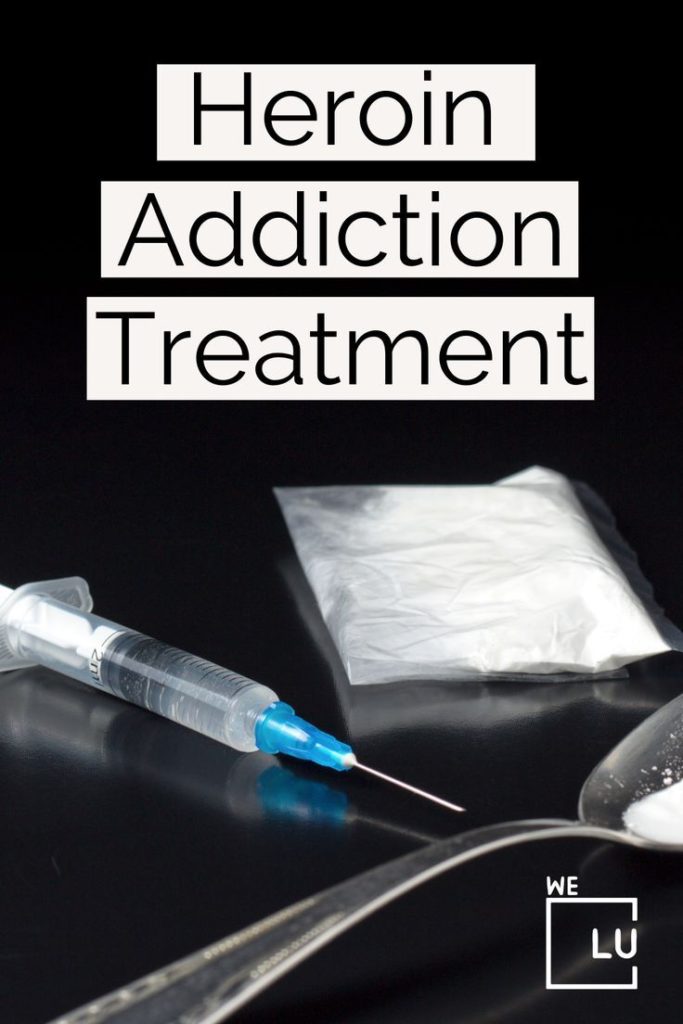
A detox center is designed to make the heroin detox process as comfortable as possible and lessen all associated risks. Round-the-clock care and monitoring are given to assist those with chronic withdrawal symptoms and ensure every client’s safety. We Level Up has a luxury detox center with everything required to achieve sobriety. Most highly qualified and trained medical staff and various treatment options are available 24/7. Following a stay in our detox and inpatient rehab program, We Level Up clients are ready and equipped for the next phase of their recovery journey.
Addiction Recovery Story of Alcoholism, Crack Cocaine Addiction, & Heroin Addiction To Sobriety & AA
Get FREE addiction treatment insurance check – https://welevelup.com/rehab-insurance/. If you or a loved one is struggling with heroin withdrawal and addiction or other substance use disorder(s), call a FREE NATIONWIDE consultation 24/7 at (561) 678-0917
Lorraine’s Addiction Recovery Testimonial Video Transcript
“If I didn’t change, I would return to jail. I’m Lorraine, and I’ve been sober for six years. I’m a recovering alcoholic, heroin addict, and crack cocaine addict.
I was homeless for several years. I called the one person that never gave up on me, and that was my mom within an hour, she was at the motel where I was staying at. And I said yes because I didn’t know what I was doing with my life, and it was the best phone call I ever made.
After getting out of treatment, I did everything they told me to do. I got a sponsor. She’s still my sponsor. She’s taken me through the steps several times. I went back to school, and now I’m one semester away from finishing my Bachelor’s in social work. And then, I will start my Master’s in hopes to be a therapist so I can be there for others.
Being sober is the only reason that I can work towards that.”
Experience Transformative Recovery at We Level Up Treatment Centers.
See our authentic success stories. Get inspired. Get the help you deserve.
Start a New Life
Begin with a free call to an addiction & behavioral health treatment advisor. Learn more about our dual-diagnosis programs. The We Level Up Treatment Center Network delivers recovery programs that vary by each treatment facility. Call to learn more.
- Personalized Care
- Caring Accountable Staff
- World-class Amenities
- Licensed & Accredited
- Renowned w/ 100s 5-Star Reviews
We’ll Call You
Search We Level Up Heroin Withdrawal Symptoms Detox, Mental Health Topics & Resources
Sources:
[1] Heroin DrugFacts | National Institute on Drug Abuse (NIDA) (nih.gov)
[2] Today’s Heroin Epidemic | VitalSigns | CDC
[3] Heroin Withdrawals – We Level Up NJ Rehab Detox Center
[4] Oelhaf RC, Azadfard M. Heroin Toxicity. [Updated 2022 May 15]. In: StatPearls [Internet]. Treasure Island (FL): StatPearls Publishing; 2022 Jan-. Available from: https://www.ncbi.nlm.nih.gov/books/NBK430736/
[5] Hosztafi S. A heroin addikció [Heroin addiction]. Acta Pharm Hung. 2011;81(4):173-83. Hungarian. PMID: 22329304.
[6] Heroin DrugFacts – National Institute on Drug Abuse (NIDA)
[7] Addiction and Substance Misuse Reports and Publications – U.S. Department of Health & Human Services
[8] Azadfard M, Huecker MR, Leaming JM. Opioid Addiction. [Updated 2022 Sep 9]. In: StatPearls [Internet]. Treasure Island (FL): StatPearls Publishing; 2022 Jan-. Available from: https://www.ncbi.nlm.nih.gov/books/NBK448203/
[9] Dydyk AM, Jain NK, Gupta M. Opioid Use Disorder. [Updated 2022 Jun 21]. In: StatPearls [Internet]. Treasure Island (FL): StatPearls Publishing; 2022 Jan-. Available from: https://www.ncbi.nlm.nih.gov/books/NBK553166/
[10] Opioid addiction: MedlinePlus Genetics – U.S. Department of Health and Human Services National Institutes of Health
My Personal Heroin Addiction Treatment Recovery Testimonial Video


